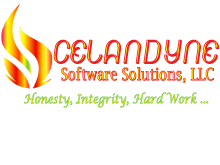Information Management
In today’s knowledge economy, organizations that can’t properly utilize their information assets risk serious failure. Information management is an emerging field that is concerned with:
Let’s take the example of print media. From age old times, newspaper used to generate lot of revenues through lucrative print classified advertisements. With the advent of internet, reader’s interest got switched to imbibing information online through different websites and newsgroups. Hence print newspaper circulation got drastically reduced and hence the revenues through advertisement.
- The infrastructure used to collect, manage, preserve, store and deliver information.
- The guiding principles that allow information to be available to the right people at the right time.
- The view that all information, both digital and physical, is an asset that requires proper management.
- The organizational and social contexts in which information exists.
The purpose of information management is to Design, develop, manage, and use information with insight and innovation.Support decision making and create value for individuals, organizations, communities, and societies.
Our consultant will help you develop a deep understanding of the users of information and the organizational and social goals information management serves. As a result, you are equipped to use information both as a competitive tool and a means to create positive organizational change. Information management’ is an umbrella term that encompasses all the systems and processes within an organisation for the creation and use of corporate information.It includes web content management (CM),document management,records management ,digital asset management ,learning management systems, collaboration,enterprise search and many more.
Information management is, however, much more than just technology. Equally importantly, it is about the business processes and practices that underpin the creation and use of information. It is also about the information itself, including the structure of information (‘information architecture’), metadata, content quality, and more.
Information management therefore encompasses:
- people.
- process.
- technology.
- content.

